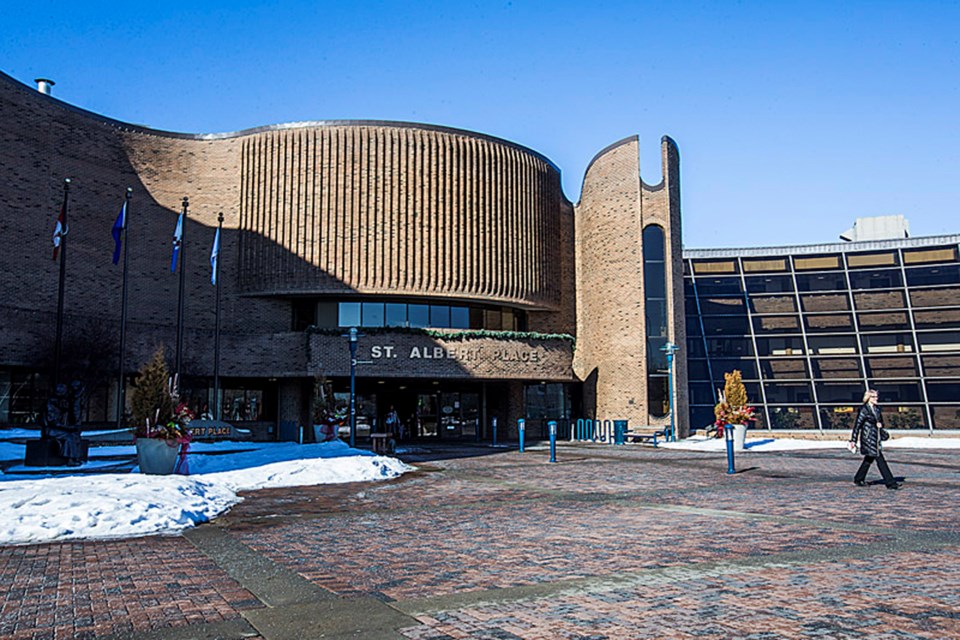Getting men to talk about their feelings doesn't have to be as difficult as many people might think. The City's Family and Community Support Services (FCSS) department is working on that, and it needs more voices at the table.
Men at Work will host its first meeting on Thursday to continue the discussion FCSS started recently with the collaboration of the St. Albert Seniors Association and the St. Albert Family Resource Centre. Together, they formed a committee in 2021 and created an overview of the available resources for men, particularly those concerning mental health and wellness. In the search for what other resources might be needed, the committee conducted a survey a few months ago to get a better picture of the needs of men in the community.
"The way our department typically works is, rather than assuming we know what the community need is, we really try and work with the community to understand what the community feels is needed. That's the process that we've been following," said FCSS prevention co-ordinator Tuval Nafshi.
"We got about 120 responses from men in the community around what they're doing for themselves and what they think might be needed in our community that might help support men and men's mental wellness.
The survey also showed several opportunities to develop relationships and connect with like-minded men within St. Albert.
With a survey, sometimes the results can still feel a bit vague, he added.
"We thought it'd be great to actually get some men together and have a deeper discussion and be able to ask follow-up questions, and dig a little deeper. Even just from getting the 140-ish survey responses, we felt like there is a need, and there are men who have a perspective and want to express themselves around this. It seems really worthwhile."
Men at Work is scheduled to meet on Thursday, April 7 from 6:15 to 7:45 p.m. at the St. Albert Public Library. Men who are interested in participating can pre-register by visiting stalbert.ca and searching for "Men at Work."
While the deeper examination of men's mental health was precipitated by the current pandemic, Nafshi continued, there has long been an overriding need and desire in St. Albert to do an assessment like the one this group is undertaking.
"I think what we're seeing, not only in St. Albert but I think across the country, is that the pandemic as well has brought things to a higher level of intensity, I think, for a lot of people of all genders around mental wellness. It's not necessarily feeling able to cope with the strategies that were used previously, or our lives have just changed in a way that just makes it even more clear that we maybe need some different strategies and different supports."
The conversation during Men at Work will focus on what activities or strategies have been working for men, and what further supports are needed.
"I think one of the misconceptions is that ... in order to address mental wellness, we need to have programs or activities or groups that are focused on mental wellness and, in fact, a lot of the things we do to improve our mental wellness are not labeled as mental health or mental wellness activities: going for a walk, connecting with neighbours, feeling useful. We have a program where we try and connect folks who can't shovel their sidewalks and their drives, for example, with neighbours who can. That's not a mental wellness project, but it can serve that purpose. If people feel connected and they feel useful, that can improve mental wellness and a feeling of connectedness.
"It's really trying to think in unique ways, in different ways, and just find supports."
He explained that the group is meant to be as welcoming and progressive as possible.
"We all have mental health, that is just the health of our mind and our general state of well-being. We can all have better and worse mental health, and we can all work to improve our mental health," he continued.
"A lot of men growing up, we learn that we should be self-reliant, that we shouldn't ask for help. That's a sign of weakness and a rejection of our masculinity. I think that also works against us, because all of us are all social beings. We all need support. We are connected, and we need that connection. I think we also are working a bit against ideas about what it means to be a man. The more we can change those ideas and just say, ‘Yeah, you know, we're all human. And we all have times of struggle. And let's lean on each other and support each other on that,’ ... the better."




